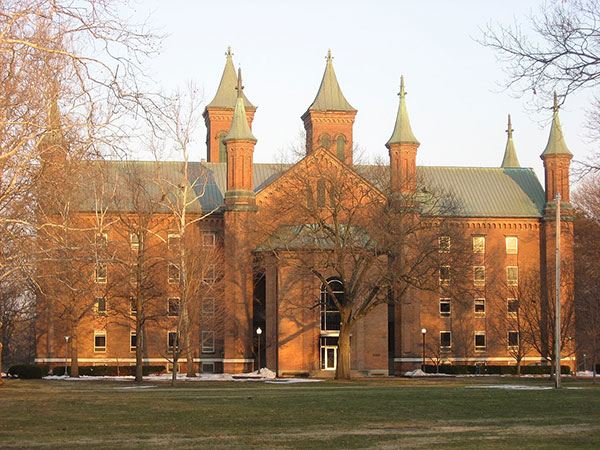College Spotlight – Antioch College
 During her remarks at a 2004 visit to her alma mater, Coretta Scott King said “Antioch Students learn that it’s not enough to have a great career, material wealth and a fulfilling family life. We are also called to serve, to share, to give and to do what we can to lift up the lives of others. No other college emphasizes this challenge so strongly. That’s what makes Antioch so special.”
During her remarks at a 2004 visit to her alma mater, Coretta Scott King said “Antioch Students learn that it’s not enough to have a great career, material wealth and a fulfilling family life. We are also called to serve, to share, to give and to do what we can to lift up the lives of others. No other college emphasizes this challenge so strongly. That’s what makes Antioch so special.”
Antioch College, a private liberal arts college in Yellow Springs (about 30 minutes from Dayton), is long known as a school that encourages students to challenge and change the world to the betterment of all people. At Antioch College, activism, sustainability and social justice—which for many colleges across the nation, have just started to become relevant in the last few years—have been cornerstones of the curriculum and culture since its earliest days.
- It was the fourth college in the nation to admit African Americans equally.
- In 1991, Antioch was the first college in America to create a formal policy addressing campus sexual assault and to mandate “verbal and mutual” consent. This policy was so controversial at the time that Saturday Night Live created a parody sketch in 1993. Today, nearly all colleges have adopted similar polices.
- In 2000, the graduating class invited transgender rights advocate Leslie Feinberg to be the commencement speaker.
- In the mid-2010s, when the college was closed due to financial pressure, the Antioch alumni embarked on a massive fundraising campaign that not only brought the college back, allowed them to gain accreditation and establish a scholarship to ensure that all Pell eligible students pay no tuition.
- The college has a farm that practices sustainable farming methods and provides much of the food for the campus dining program.
It’s one of the few colleges in the nation to offer a cooperative education work program that is mandatory for all students. Students learn in an environment that is a blend of practical work experiences and classroom learning. Not only do students work on campus; they govern their college. Students play crucial roles in a participatory community governance, where students have a real voice in the rules that the college follows.
Antioch states that its ideal student is “one who has a curiosity about the world and their place in it and has a strong interest in exploring and challenging ideas”. They welcome the person you are and challenge you to see the possibility in others.
